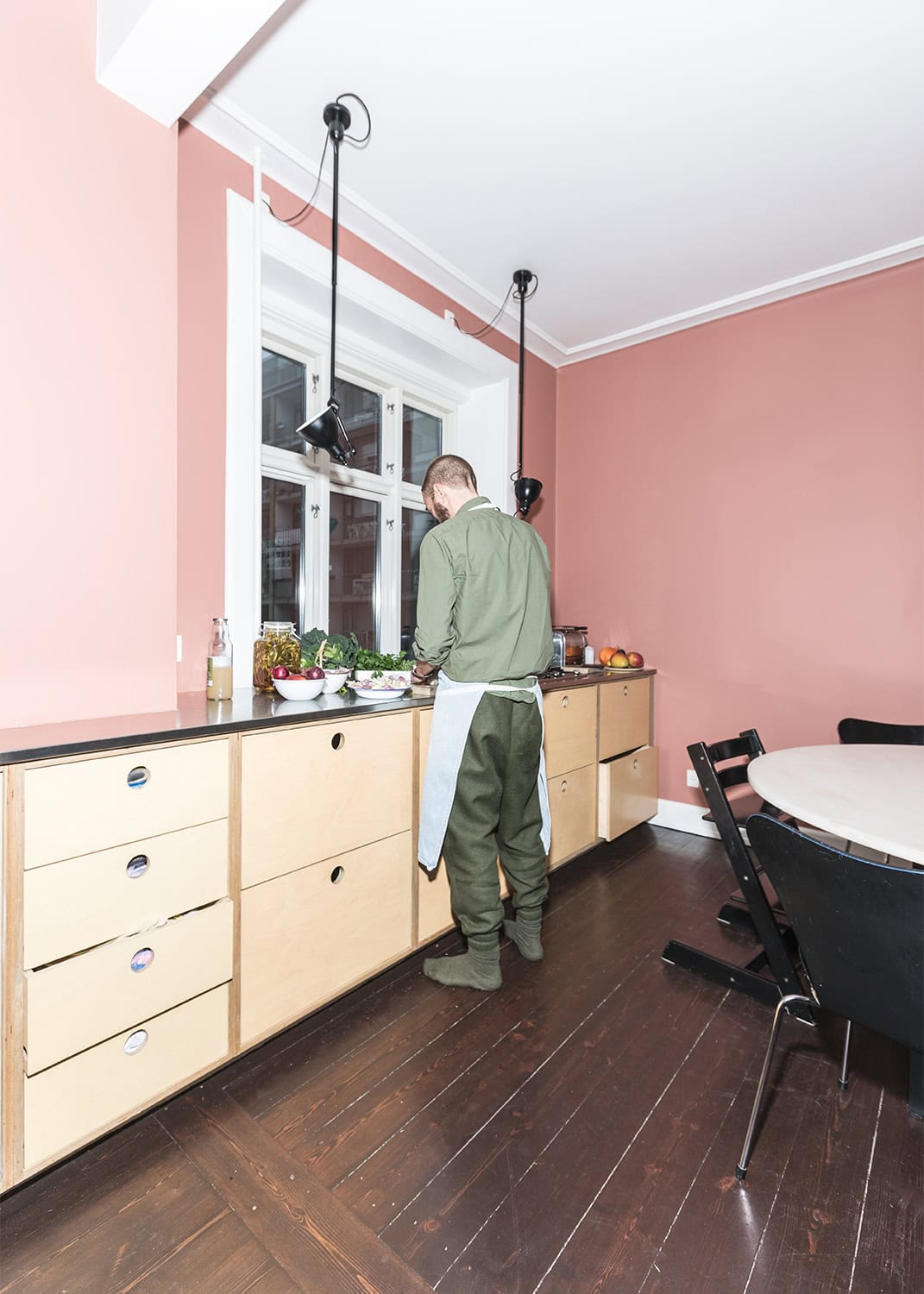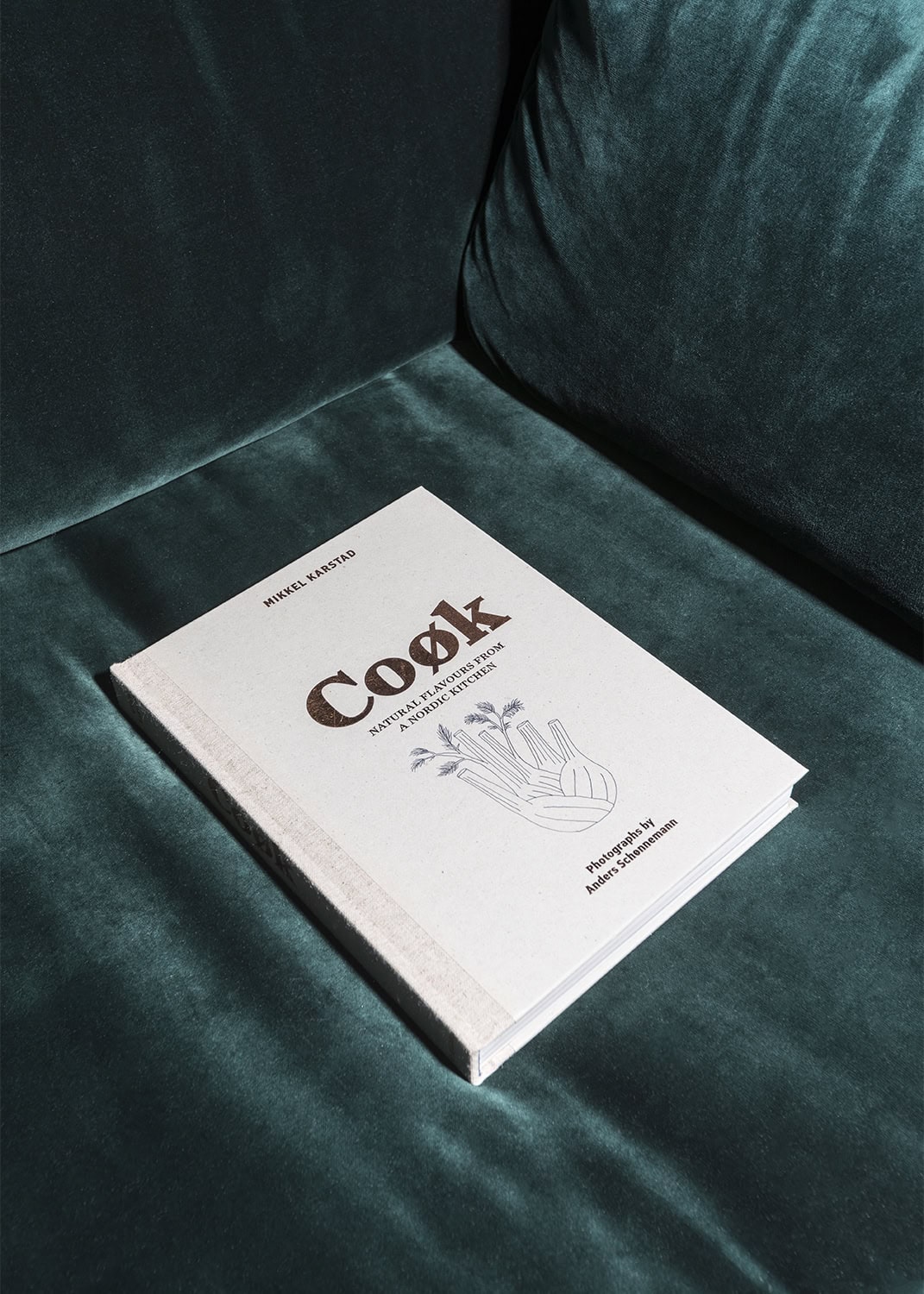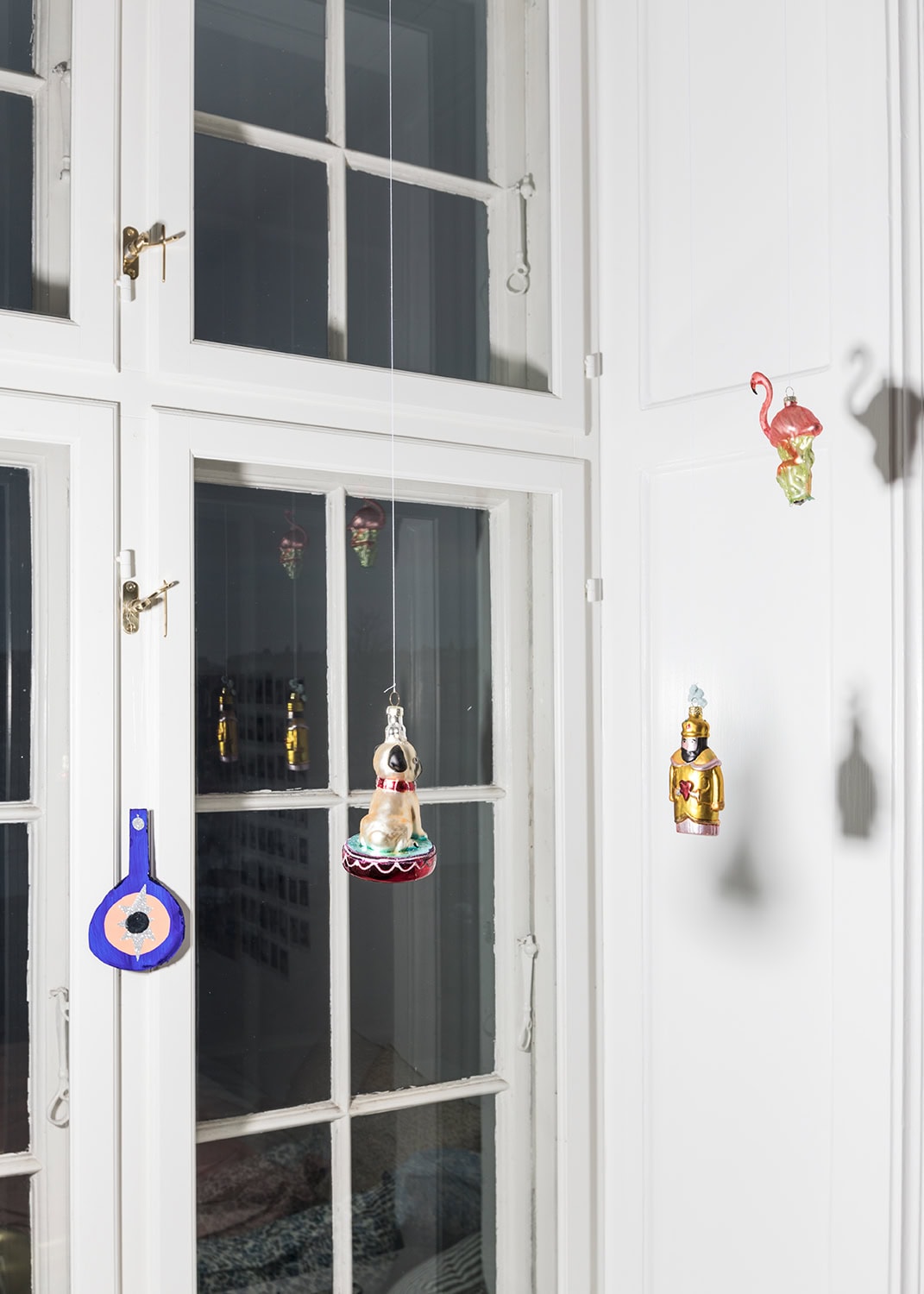The Danish writer and poet Hans Christian Andersen, famous above all for his fables, wrote: “Every man’s life is a fairy tale, written by God’s fingers.”
We could start by ‘Once upon a time’ and narrate about a man’s life, a man who dives every morning into the North Sea, who strolls for hours among tall trees while picking some of the undergrowth, who searches for a quiet corner in the middle of a big city where he can sit down and write.
This is not a fable though, but the story of Mikkel Karstad, although the truth, once told, does not change. The only difference is that, behind this one hero, lies the life of a man, together with all the complexities that it entails. Mikkel is a chef, a writer and a father, even though it would probably be necessary to describe him in a different order. He is a man who chose to commit himself to the search for balance, starting from the essential, which, like writing a simple and effective story, takes time and commitment. Simultaneously, a life based on giving importance to the small things must not be mistaken for an easy life.
“See? These are edible. You can make use of them to prepare a salad, to season the oil, or to make jam.“
Fables are made to tell a truth in a simple, straightforward, yet delicate way. The superfluous is put aside to make room for the mere key message, hidden in a fairy-tale imaginary. They are often woven starting from something apparently ordinary, though veiling the hint for an extraordinary story that is able to talk to anybody, to whomever has the willingness to listen.
It is a long path which requires great constancy and continuous commitment to isolate yourself from the noise, choosing to give importance exclusively to what deserves it, to fully live the shades of brief moments that are apparently meaningless.
Because these are not just small pines as big as the tip of a little finger. The basket is soon filled with unexpected ingredients which, for some, are good only to be trampled in the middle of the moss. Mikkel does not find these gifts through mere knowledge, but through interest and attention instead. Similarly, Mikkel’s cuisine is based on the same ideals: using few elements which are carefully selected and treated with wisdom and respect. What lacks in the copiousness of the ingredients is compensated by years of study, research, commitment and love for what he does. This is the ordinary story of an extraordinary person, the story of a man who day by day chooses to be the fables’ hero which he wants to resemble.
“That is a story which I heard when I was a child; and now you have heard it too, and know that what the old man does is always right.”
> What the Old Man Does Is Always Right, by Hans Christian Andersen
“Far out in the ocean, where the water is as blue as the prettiest cornflower and as clear as crystal, it is very, very deep; so deep, indeed, that no cable could fathom it: many church steeples, piled one upon another, would not reach from the ground beneath to the surface of the water above. There dwell the Sea King and his subjects.”
“We must not imagine that there is nothing at the bottom of the sea but bare yellow sand. No, indeed; the most singular flowers and plants grow there; the leaves and stems of which are so pliant, that the slightest agitation of the water causes them to stir as if they had life. Fishes, both large and small, glide between the branches, as birds fly among the trees here upon land. In the deepest spot of all, stands the castle of the Sea King. Its walls are built of coral, and the long, gothic windows are of the clearest amber. The roof is formed of shells, that open and close as the water flows over them. Their appearance is very beautiful, for in each lies a glittering pearl, which would be fit for the diadem of a queen.”
> The Little Mermaid, by Hans Christian Andersen
“One day he was walking alone in the wood, which was his greatest pleasure when evening came on. The clouds gathered, and the rain poured down as if the sky had been a waterspout; and it was as dark as the bottom of a well at midnight; sometimes he slipped over the smooth grass, or fell over stones that projected out of the rocky ground. Everything was dripping with moisture, and the poor prince had not a dry thread about him.
He was obliged at last to climb over great blocks of stone, with water spurting from the thick moss. He began to feel quite faint, when he heard a most singular rushing noise, and saw before him a large cave, from which came a blaze of light. In the middle of the cave an immense fire was burning, and a noble stag, with its branching horns, was placed on a spit between the trunks of two pine trees. It was turning slowly before the fire, and an elderly woman, as large and strong as if she had been a man in disguise, sat by, throwing one piece of wood after another into the flames.”
> The Garden of Paradise, by Hans Christian Andersen
“Life itself is the most wonderful fairy tale“
This stories is featured on C41 ISSUE 6 Drink.













